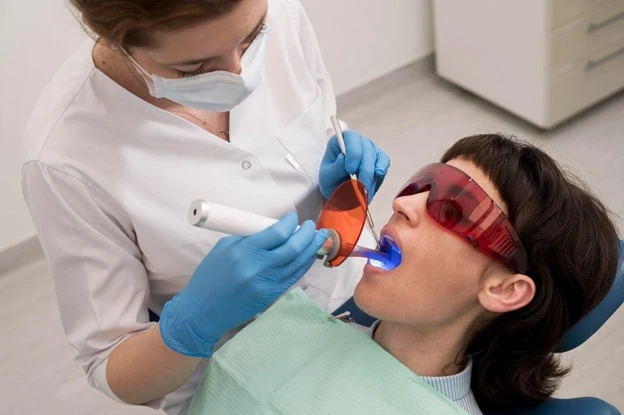How are Dentists Addressing the Suboxone-Related Dental Crisis?
Due to the opioid crisis, Suboxone, a film prescribed for treating opioid addiction, is increasingly being used. However, increasing evidence connects Suboxone use with severe tooth decay, often called a Suboxone-related dental crisis. A recent JAMA Network study reported 8.2 tooth loss or dental caries cases per 1000 person-years among sublingual Suboxone users.

Let’s examine the legal implications of the dental crisis linked to Suboxone and how dentists are managing it. We’ll also explore necessary treatments for Suboxone-induced tooth decay.
Suboxone and Dental Health
Suboxone is a drug used to treat opioid addiction. It is formulated with naloxone and buprenorphine. Sublingual buprenorphine-naloxone films or tablets are commonly used for administration. Nonetheless, research indicates that Suboxone users experience deteriorating dental health, hinting at a potential link with severe dental caries. Serious dental injuries can result from this phenomenon, which is often referred to as Suboxone tooth decay.
The drug’s acidic nature—it dissolves at a pH of 3.4—is the primary concern behind damaging the integrity of tooth enamel. This acidity can erode dental enamel, leading to more severe tooth loss, advanced decay, and erosion. You may also read Why should not be left out of attention belts?

The Dentists’ Role in Managing the Crisis
By identifying its symptoms, dental professionals can help manage Suboxone tooth decay and avert additional dental injuries.
- Early detection: Dentists perform caries risk assessments to identify early signs of tooth decay, which is crucial for Suboxone users. This involves reviewing changes in tooth enamel integrity and the frequency of dental visits, which helps in timely interventions.
- Comprehensive dental care: Dentists need to provide extensive dental care for patients experiencing advanced dental decay. To address the extensive damage caused by the medication, treatments may include crown replacements, root canals, and tooth extractions.
- Preventive care: To mitigate the effects of Suboxone on teeth, dentists suggest rinsing the mouth after Suboxone use to neutralize acids. They recommend using high-fluoride dental products for enhanced protection. Moreover, staying hydrated helps combat dry mouth, a common Suboxone side effect that can cause tooth decay.
- Patient education: Dentists educate patients about Suboxone’s potential side effects, including gum disease, oral infections, and other dental issues. They also educate patients on the value of upholding proper oral hygiene to prevent future dental issues.
- Creating a plan to prevent tooth decay: Dentists create plans that involve regular dental exams and preventive treatments like fluoride and sealants to prevent dental caries. They also customize oral hygiene routines for each patient, emphasizing the importance of using high-fluoride toothpaste, frequent brushing, and flossing.
It is crucial to remember that, despite these efforts, treating Suboxone-related dental issues can be very expensive. According to TruLaw, the expenses can be anywhere from $50,000 to $150,000. Patients using Suboxone must be aware of potential dental health risks. They may need legal action if tooth decay results from Suboxone use.
The Legal Viewpoint
Plaintiffs have filed Suboxone product liability lawsuits due to severe tooth decay resulting from the drug’s dental implications. Suboxone lawsuit teeth-related claims indicate that manufacturers ignored dental health risks, updating labels only after government intervention. These Suboxone dental lawsuits are being handled by the United States District Court and the Judicial Panel on Multidistrict. There have been no settlements yet.
People Also Read?
What is a Phishing Simulation & How to Protect Against Attacks
Frequently Asked Questions
Conclusion
Hence, the dental crisis linked to Suboxone underscores the challenge of treating opioid use disorder and its medication side effects. The significance of accountability and openness in pharmaceutical practices is highlighted by the ongoing litigation. Dentists remain at the forefront, mitigating Suboxone’s impact on patients’ dental health and striving to minimize adverse effects.





